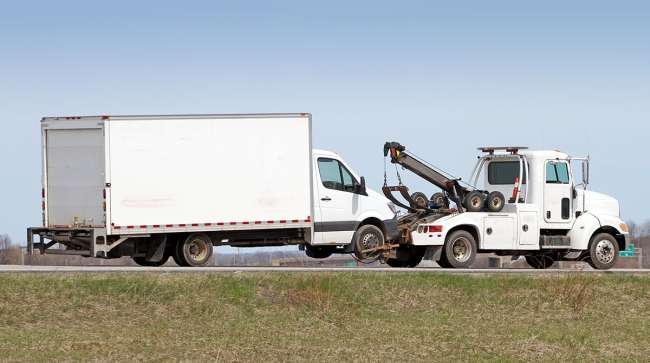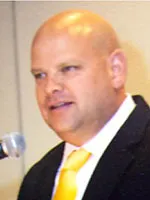Senior Reporter
Federal Regulators Hear Complaints About Predatory Towing

[Stay on top of transportation news: Get TTNews in your inbox.]
What was pegged to be a session for truckers to complain about the bad actors in the towing and recovery business also turned out to be a candid gripe session by towing company operators and their trade associations, which said they weren’t always paid for their services.
That’s not to say that towers wouldn’t admit they had some predatory players in their midst.
But they also said that towing companies too often get stuck with unpaid bills they invoice to motor carriers, largely over insurance confusion, negotiations and disputes.
Federal regulators say they are attempting to better understand the problem of predatory towing, and what, if anything, they can do to mitigate the problem.

Buttigieg
In opening remarks at the June 21 session on predatory towing, Transportation Secretary Pete Buttigieg said federal regulators plan to find ways to ensure that motor carriers are not overcharged when their trucks get in tow-away accidents. When that happens, police officers at the scene are in a hurry to mitigate traffic backups by calling towers quickly to clear the scene of the accident, and most of the time, motor carriers don’t get to choose who tows their trucks.
“Of course, there are necessary and fair costs associated with the towing of a commercial vehicle,” Buttigieg said. “But some companies have seen an opportunity to charge exorbitant fees into the tens of thousands of dollars before returning a vehicle back to the truck driver. That isn’t right. It isn’t fair.
“This includes hiding fees until the tow is completed, charging for unnecessary services, or imposing fees or excessive amounts just because the towing company thinks that it can get away with it.”
Research in November 2023 by the American Transportation Research Institute backed up concerns by the trucking industry that they were too often being overcharged by some towing companies.
ATRI Study: Causes and Countermeasures of Predatory Towing
For example, a $202,000 invoice in Virginia a few years ago brought renewed attention to the topic after a series of recent incidents garnered media coverage. In its study, ATRI found that predatory billing was the most common form of predatory towing, with excessive rates experienced by 82.7% of motor carriers.
ATRI said additional common forms of predatory towing include improper vehicle seizure, vehicle access or release issues, and withheld cargo.
Corey Cox of the Tandet Group of companies discusses how early AI adopters are beginning to harvest the latest wave. Tune in above or by going to RoadSigns.ttnews.com.
The most problematic area seems to center on nonconsensual costs, those primarily generated by police who want recovery vehicles to the scene of an accident as fast as possible. In those cases, there is little or no time for negotiating fees between truckers and towers.
But at the June 21 meeting, towing operators and their trade association officials were quick to point out that they must purchase a variety of expensive trucks and other equipment when they go out on calls and have no idea what they may be encountering at a crash scene.

Tedford
Thomas Tedford, chief operating officer for Guardian Fleet Services, said regulators too often have no consideration for the costs towers pay for readiness and response — a requirement that drives up costs.
“We are required to respond 24/7, 365 days a year even during holiday dinners, during tragedies, no matter what to clear the roadways. We don’t have the ability to say, ‘schedule that truck to roll over on Thursday please at 10 a.m.,’ ” Tedford told the federal regulators at the session. “Generally it happens at 11 o’clock at night — and the geographic concerns we have across the country. Incidents are vastly different. This is not a one-rate-fixes-all subjects. It’s across the board.”
“Yes, we do have bad apples,” said Bruce Bender, administrator for the Towing and Recovery Association of Ohio, “but very few compared to the good guys that are out there in the industry. Lots of times our guys are stuck with not getting paid.”
Said Frances McGregor, owner of Phoenix Metro Towing in Mesa, Ariz.: “We’ve seen about 30% of the bills not paid. I think the problem is not enough towing insurance for trucking companies.”
Want more news? Listen to today's daily briefing below or go here for more info:





